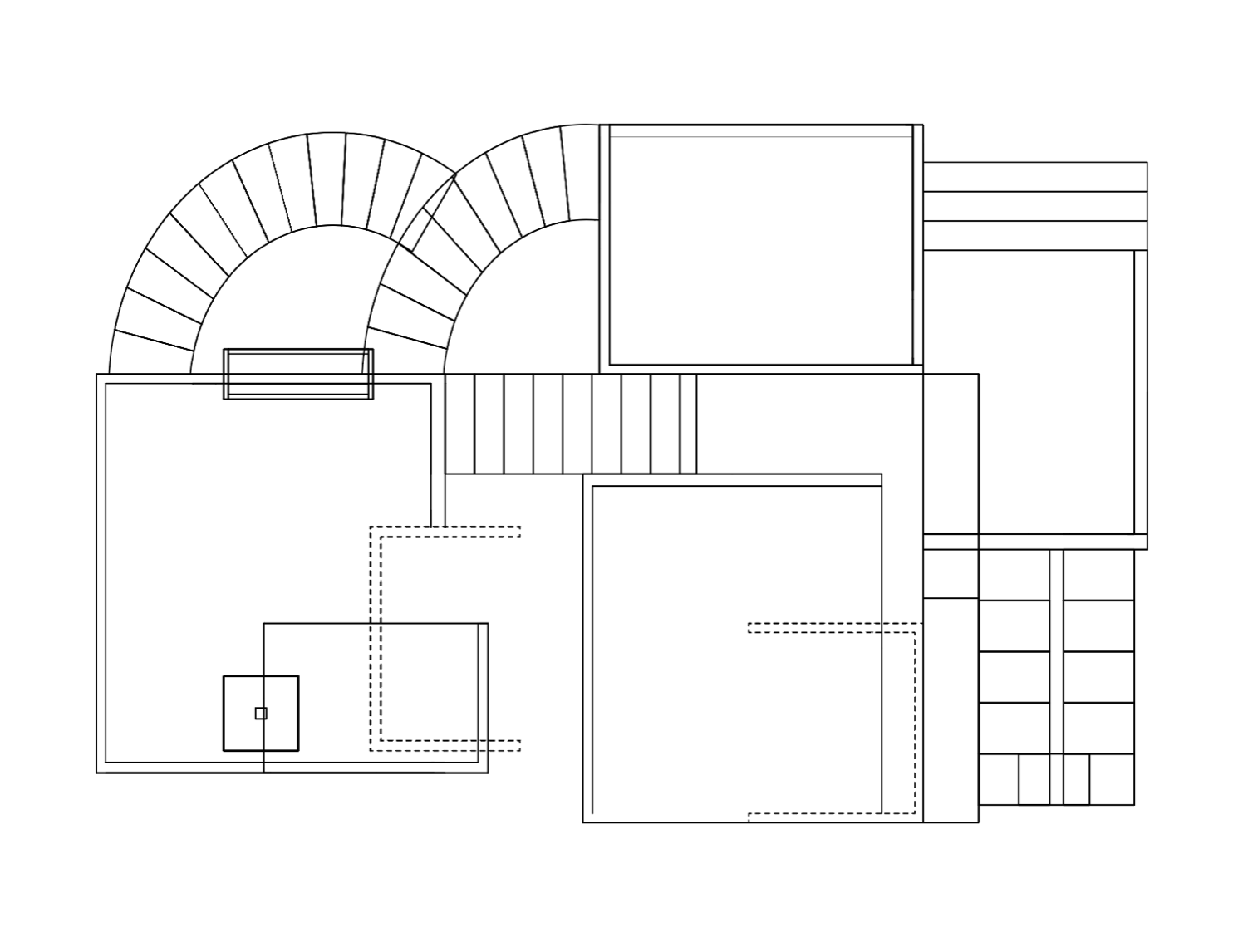
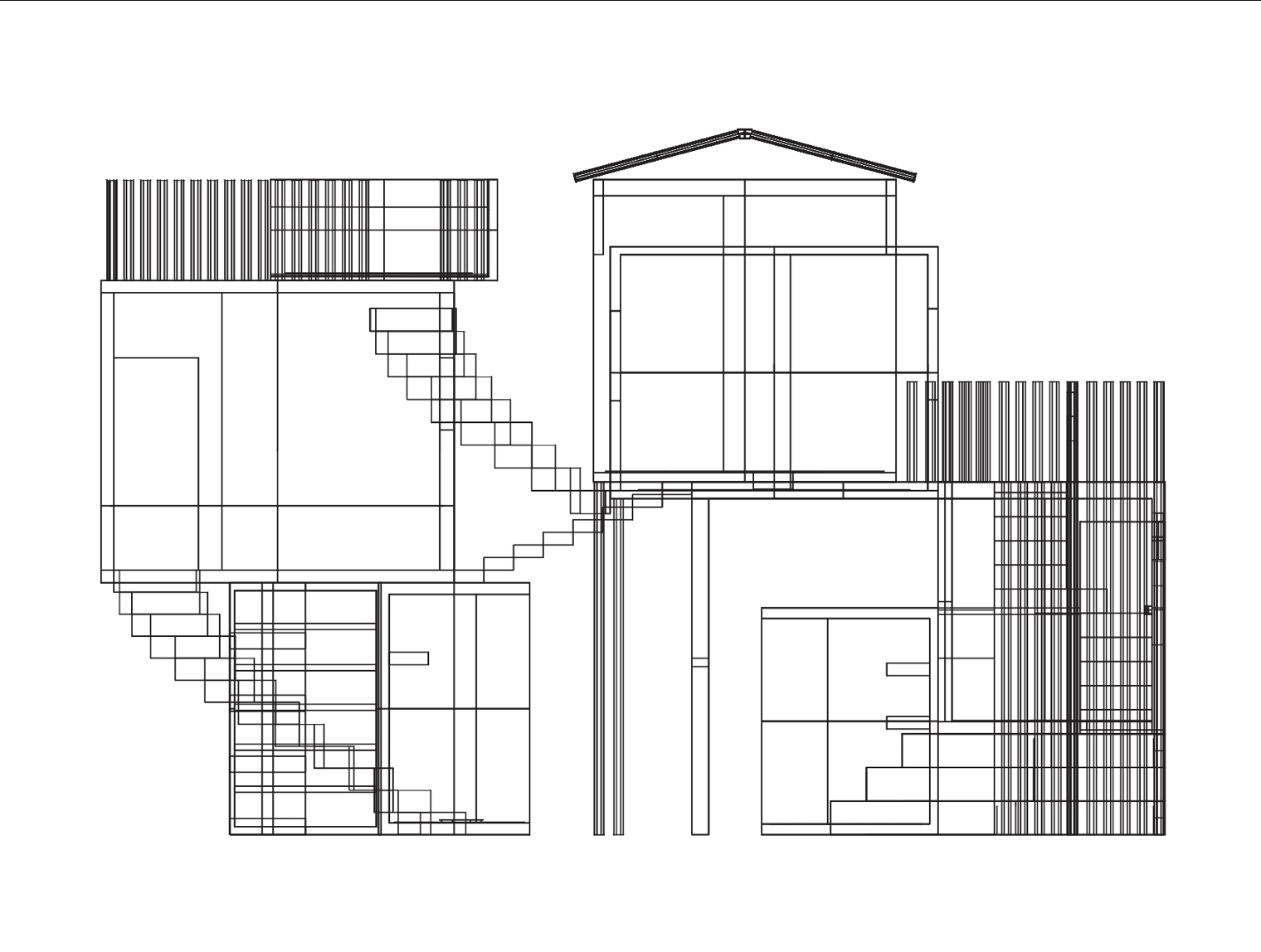




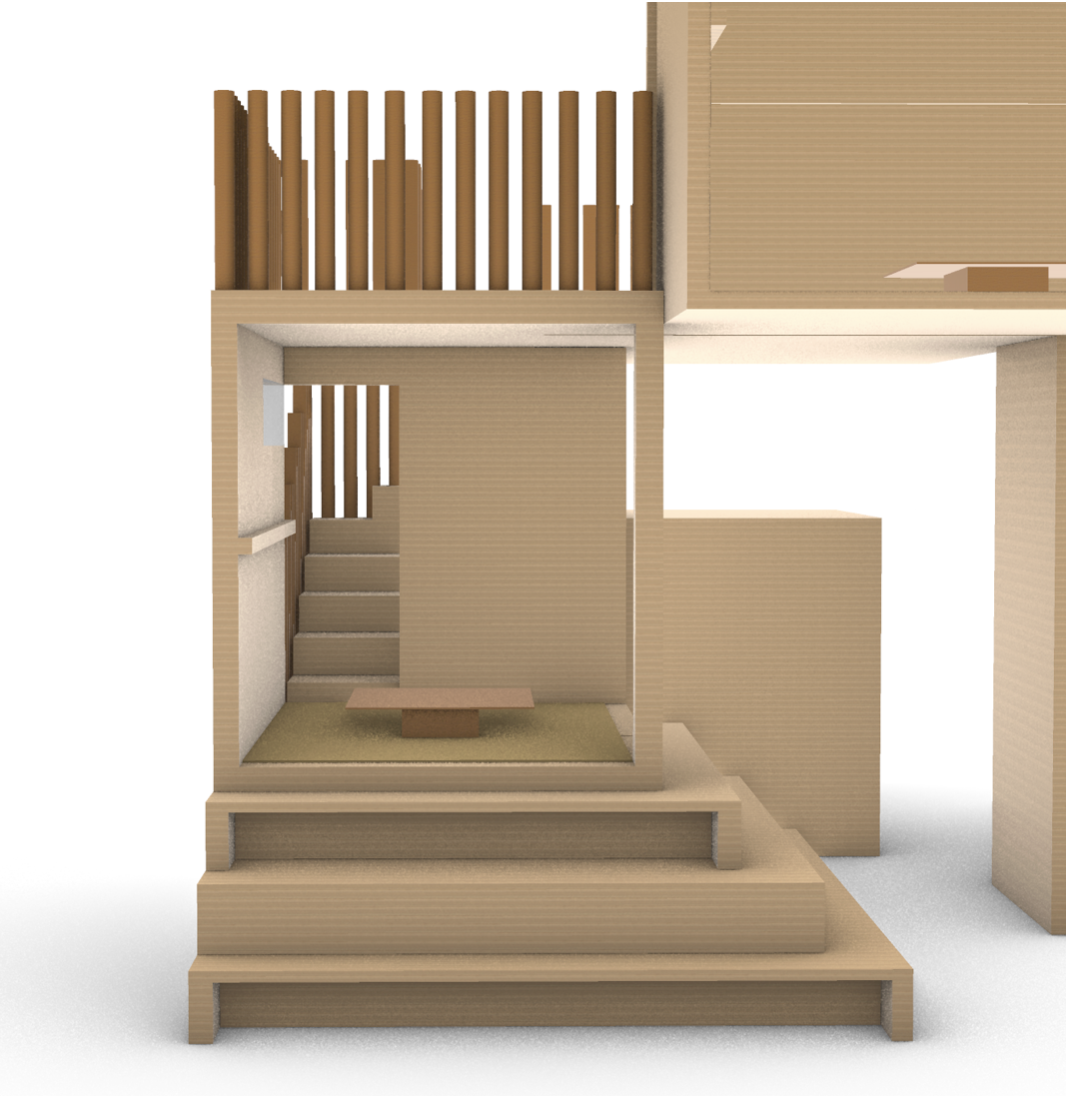


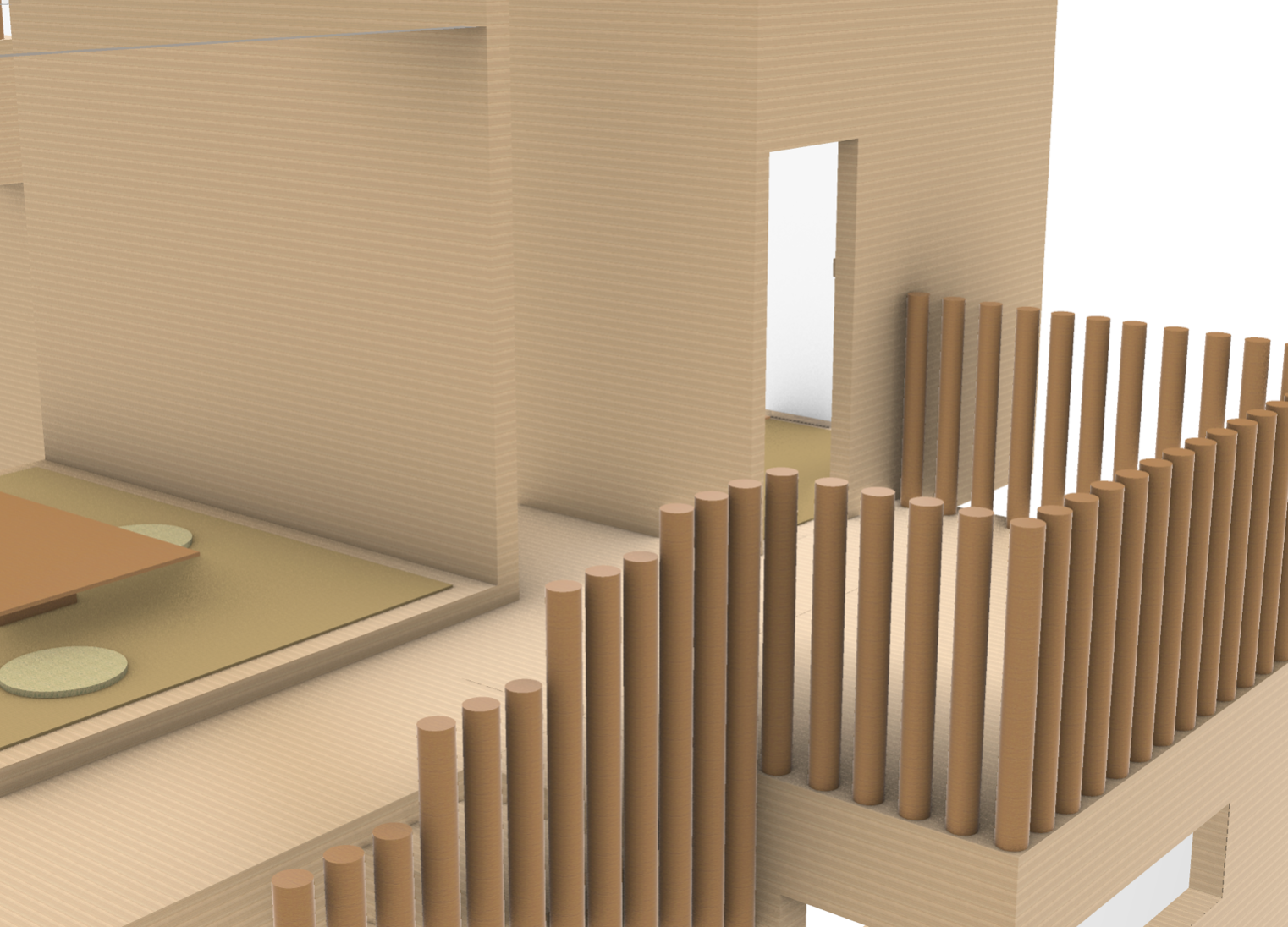
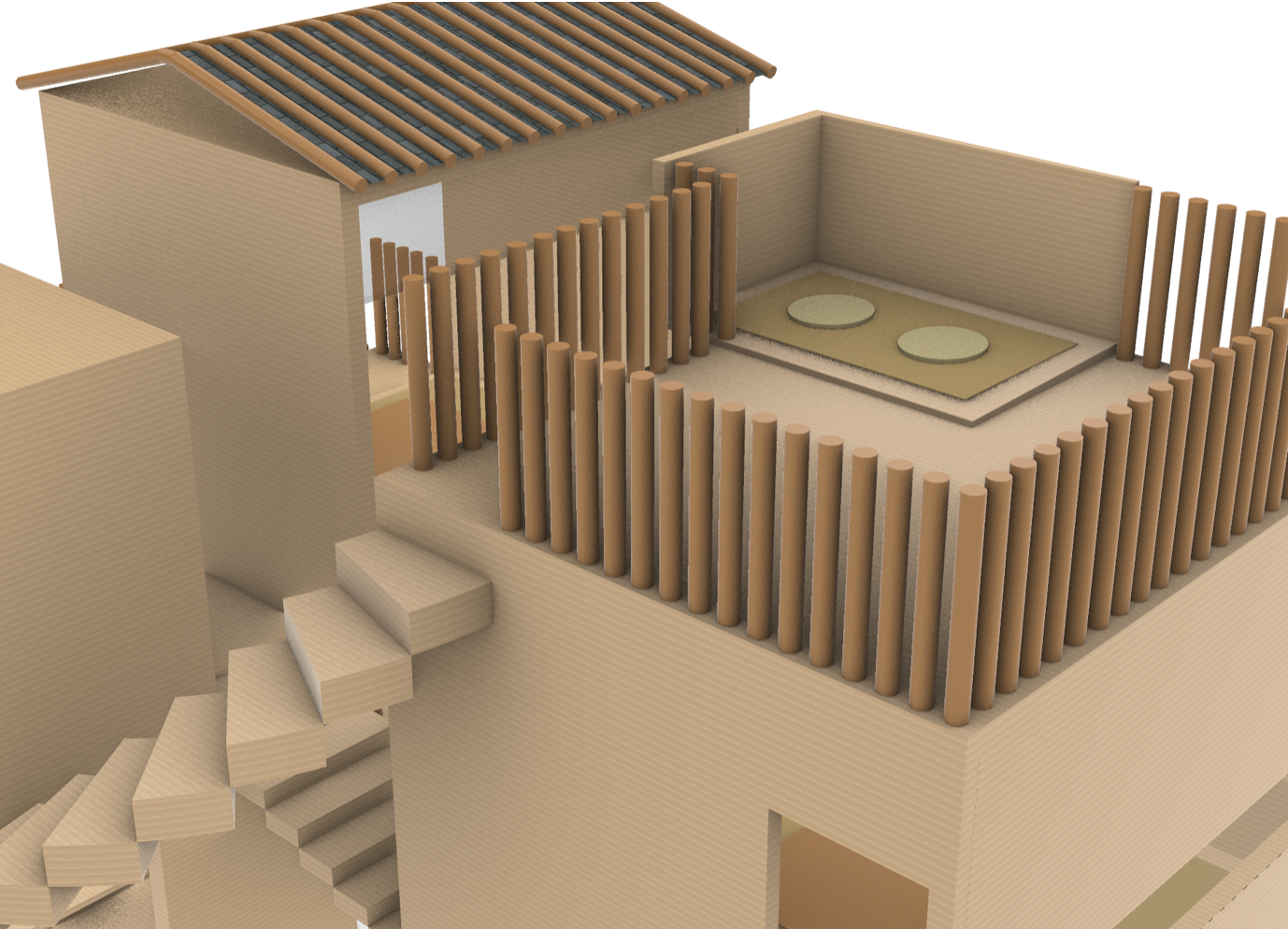

Title: Tea Brewing Meditation Space
The design of this meditation tea space emerges as a contemporary dialogue with traditional Japanese architecture, emphasizing simplicity, modularity, and the philosophical interplay between materiality and emptiness. The form transcends the confines of context, existing as an autonomous object, yet embodies the essence of reflection, stillness, and connection with the self.
This is a reinterpretation of Japanese architectural principles, such as the engawa (veranda), tokonoma (alcove for contemplation), and the concept of ma (negative space). These principles guided the spatial arrangement and material composition of the structure. The project draws from the serene aesthetics of Japanese tea houses, blending linearity with organic flow and introducing contemporary abstraction to push the boundaries of traditional design.
The structure is fragmented into modular units, each representing a distinct meditative moment: ascent, arrival, and pause. This segmentation encourages movement through spiraling pathways, gently guiding the user into a state of mindfulness. The deliberate layering and interplay of enclosed and open spaces evoke the act of peeling away distractions to reveal clarity within.
The design consists of three interconnected pavilions elevated on stilts, creating a sense of levitation and detachment from the mundane. The volumes are rendered with clean, geometric forms that allude to traditional shoji screens but maintain an abstract quality, allowing light and shadow to become a vital part of the architectural narrative.
This project seeks to challenge the conventions of programmatic architecture by existing as a space that is as much for doing as it is for being. Inspired by the traditional Japanese tea ceremony, the space is not merely a venue for activity but a medium for self-realization. By blending modern abstraction with timeless principles, the design embodies the tension between old and new, structured and fluid, internal and external.
